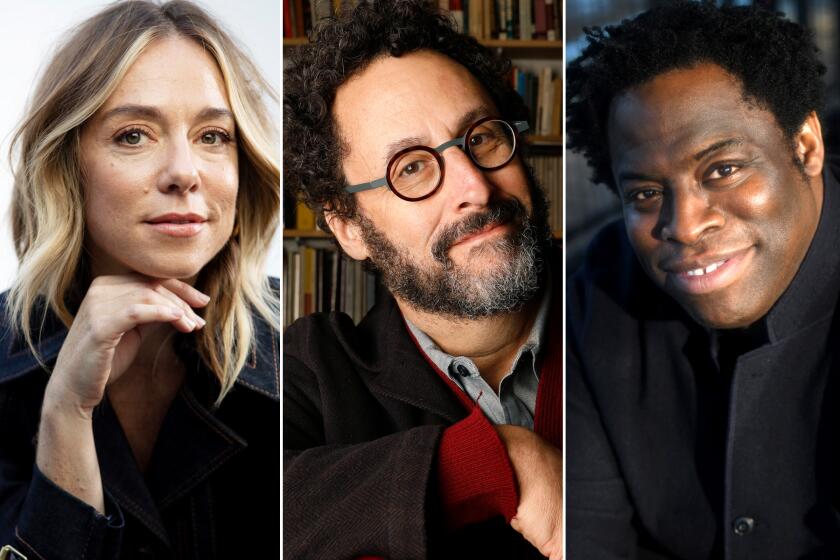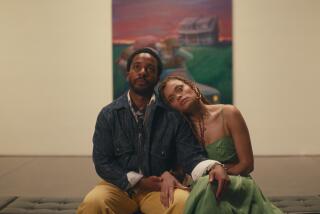Why Fran Kranz needed to examine the role of forgiveness in his film ‘Mass’
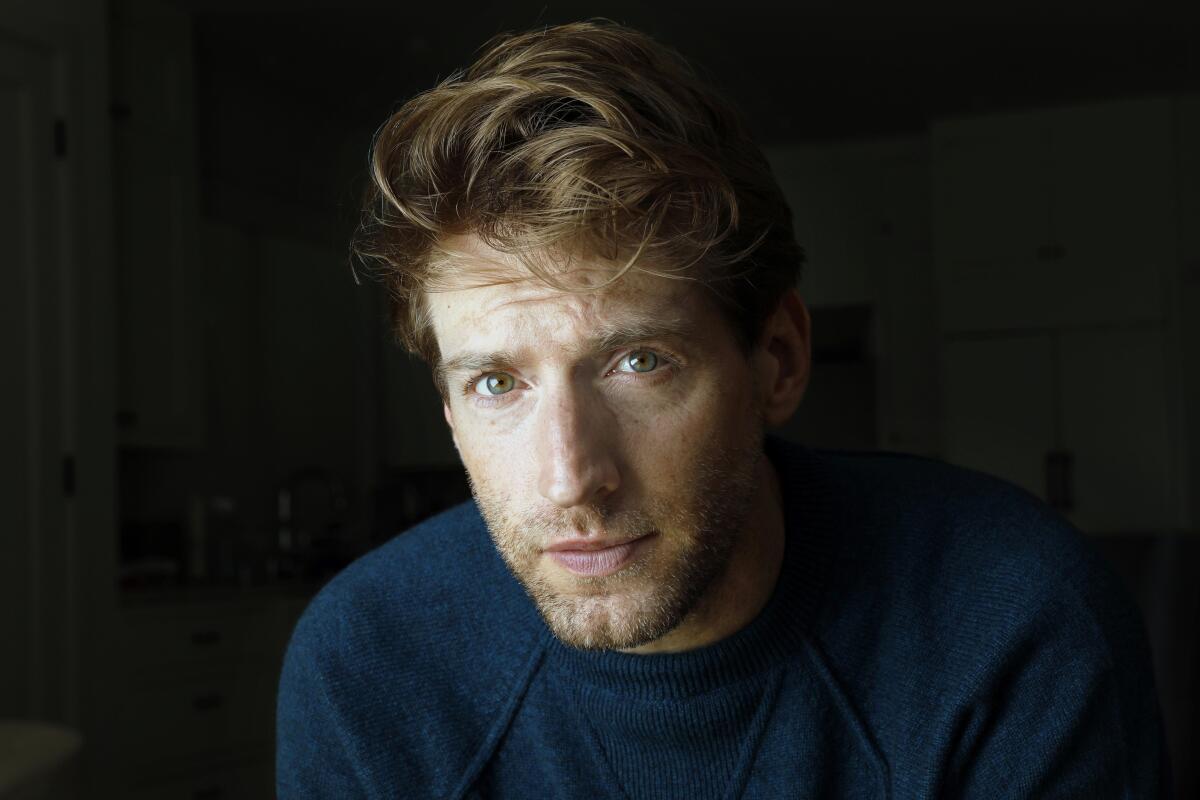
- Share via
I wanted to write about forgiveness, because in the most difficult circumstances, I wasn’t sure if I was capable of it.
Forgiveness is a strange currency. It’s not always as valuable received as it is when it’s given. If it comes cheaply or with conditions, it feels deflated or hollow. I can’t quite figure out how its value is determined, and I can’t place exactly where its value changes as it passes from the grantor to the beneficiary. It’s not always an even trade.
When I was a student, I learned about the Truth and Reconciliation Commission in South Africa. I was amazed by stories that came out of the amnesty hearings. They are some of the most moving and horrifying examples of our human experience. I was inspired, but I was also afraid. I didn’t think I could participate in a process of restorative justice. I feared that if I lost a loved one, I would never be able to forgive the perpetrator. I could not make an effort to simply heal through truth and reconciliation. I would need punishment, retribution. Fortunate to never experience that kind of loss, I was able to bury these thoughts.
Almost 20 years later, on the day of the Parkland school shooting in Florida, those dormant fears were awakened. I was a new parent and overwhelmed with concern for my daughter and the country she was going to grow up into. Listening to the collective grief that day once again forced me to confront my ability to forgive. Could I live a life without hate and blame? Who should I hate? Who should I blame?
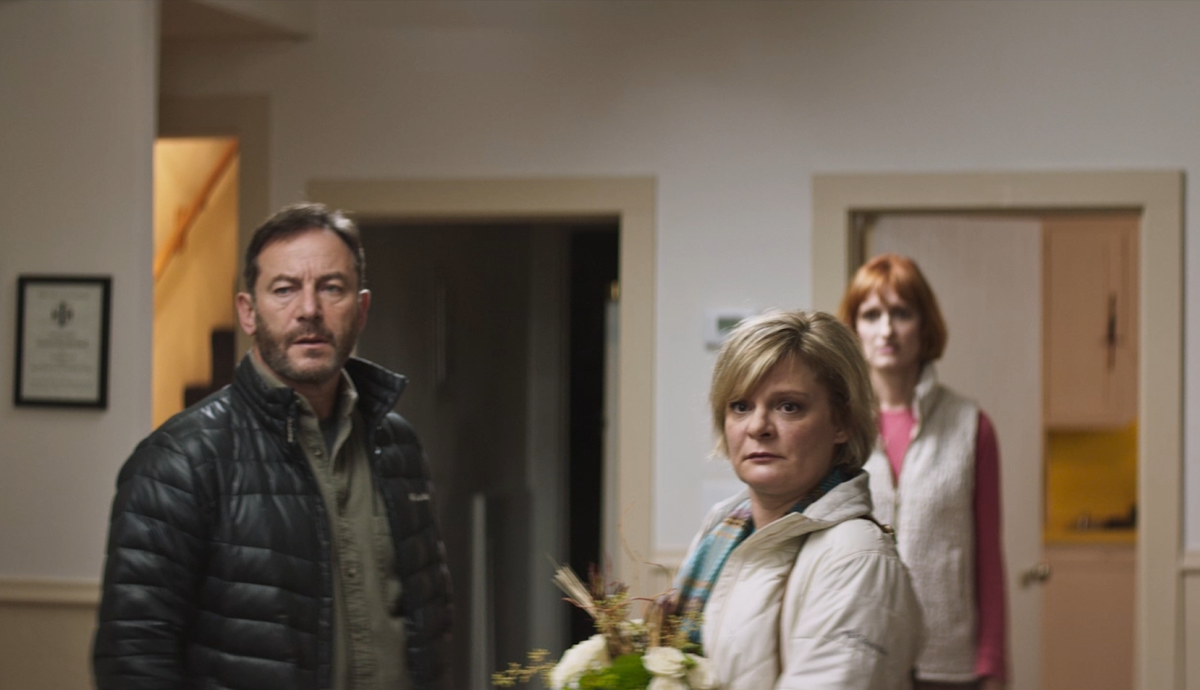
That day started what would become nearly two years of research into the subject of mass shootings. I learned a lot. Some things will haunt me. Thankfully, I also learned about extraordinary people.
In one book, I read about the parents of a shooter meeting the parents of a victim at one of their homes years after the attack. There were few details. They cried. They even laughed. They shared photographs. That’s all that was available to the reader. I remember staying awake late into the night imagining what must have fully transpired there. What could you possibly say? How could you move forward through that and with the very people you felt so much hate and blame toward? I soon realized that these were the same questions I had asked many years earlier. It was time to answer them for myself.
In their own words: Tony Kushner, Rebecca Hall, Jeymes Samuel and other screenwriters take us on a journey through writing their film scripts.
I wrote my four characters as equals. They were not good or bad, protagonists or antagonists. I never found that in my research. I found complex humanity. I found the mess of parental love. In my own life, I knew I was condemned to make mistakes every day before my daughter was even 2. I knew the odds were against you as a parent, so I wrote each of them with as much compassion and dignity as I could imagine.
The movie itself happened quickly. I created a company online, put money into a bank account, claimed I was partly financed, hired great casting directors so I wasn’t cold-calling agents myself, put together a brilliant crew that taught me all I didn’t know, found a location and settled on a date.
With some incredible good fortune, I soon had four great actors to play the parents. I recognized their talent and valued their instincts, so I trusted them to tell me what they needed. Over a 2½-day rehearsal, I rewrote the script so all the steps were there to carry them on their way. We shot the film in 14 days. Editing took much longer. Then we submitted the film to the Sundance Film Festival. Now, with even greater fortune, audiences have watched the film in theaters.
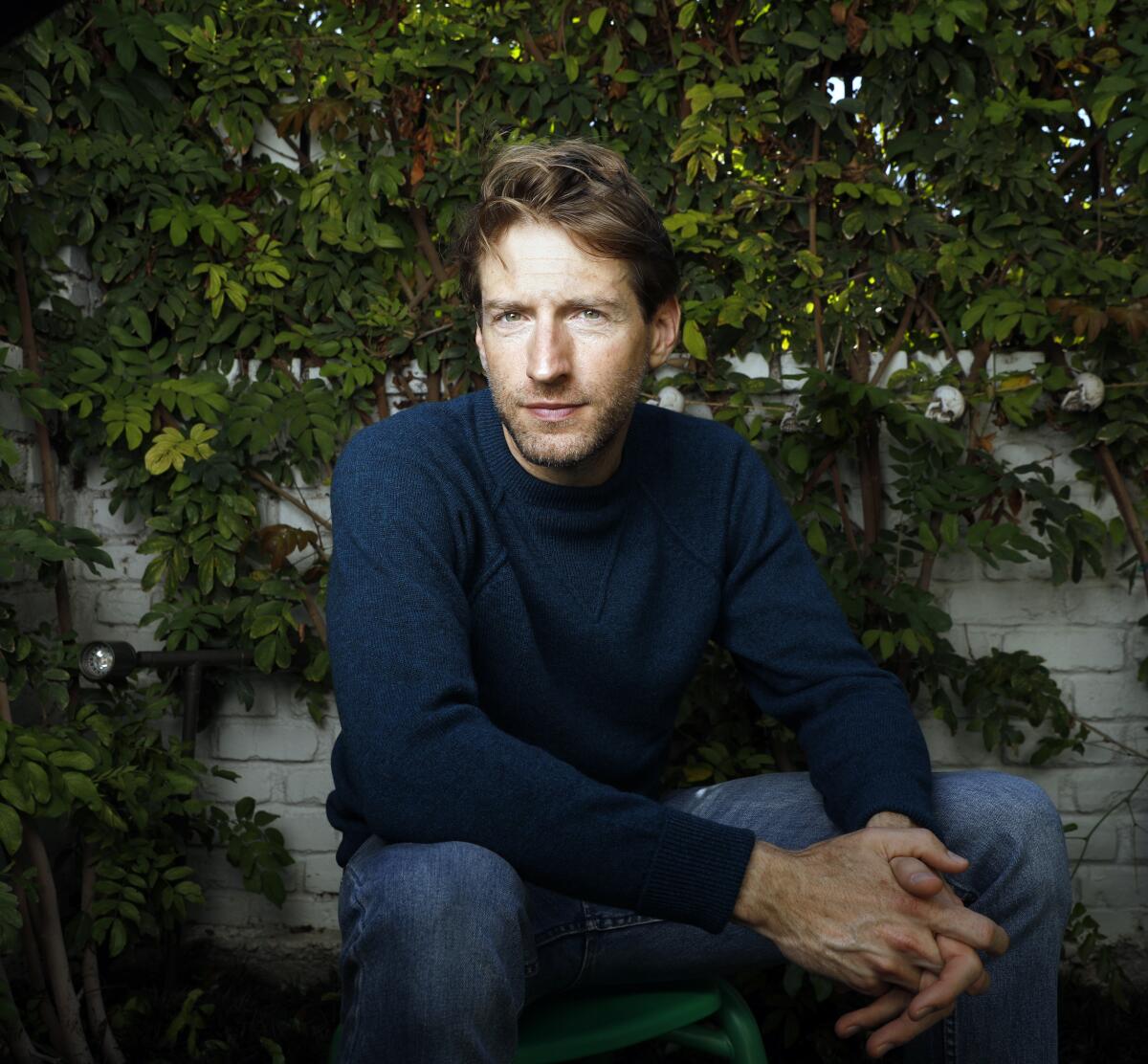
I don’t think “Mass” offers explanations for gun violence in America or even the horrifying mass shootings that have become so common. At some point in the writing process, all that mattered was the people that live on in the aftermath. That’s what I remember most from my research; their suffering, their trauma and their need to heal.
The movie is a way for us to stay with them long after the headlines stop generating views or ratings. Not just to learn about their pain but also to learn about their lives, their hopes and fears, their children. Because if we can feel their suffering, we can feel their humanity. It’s that latter connection that the movie is ultimately about, and finding it in the people you don’t want to look at.
I often wonder if this is the only solution I unconsciously offered. That to stop the bleeding in America we have to find the shared humanity in each other again, the shared suffering. That it might never happen debating contentious issues that immediately pit us in opposition to one another, demonizing ourselves and making antagonists out of politicians, neighbors and family members. That we have to uproot this fruitless dynamic by cultivating a greater empathy for those we disagree with or even hate and blame. That we have to come to the table, with nothing but our truth in words and feelings, and work our way through our differences as people, not as politics.
Maybe then the miraculous discovery will be that there are fewer differences between us than we feared.
More to Read
From the Oscars to the Emmys.
Get the Envelope newsletter for exclusive awards season coverage, behind-the-scenes stories from the Envelope podcast and columnist Glenn Whipp’s must-read analysis.
You may occasionally receive promotional content from the Los Angeles Times.
